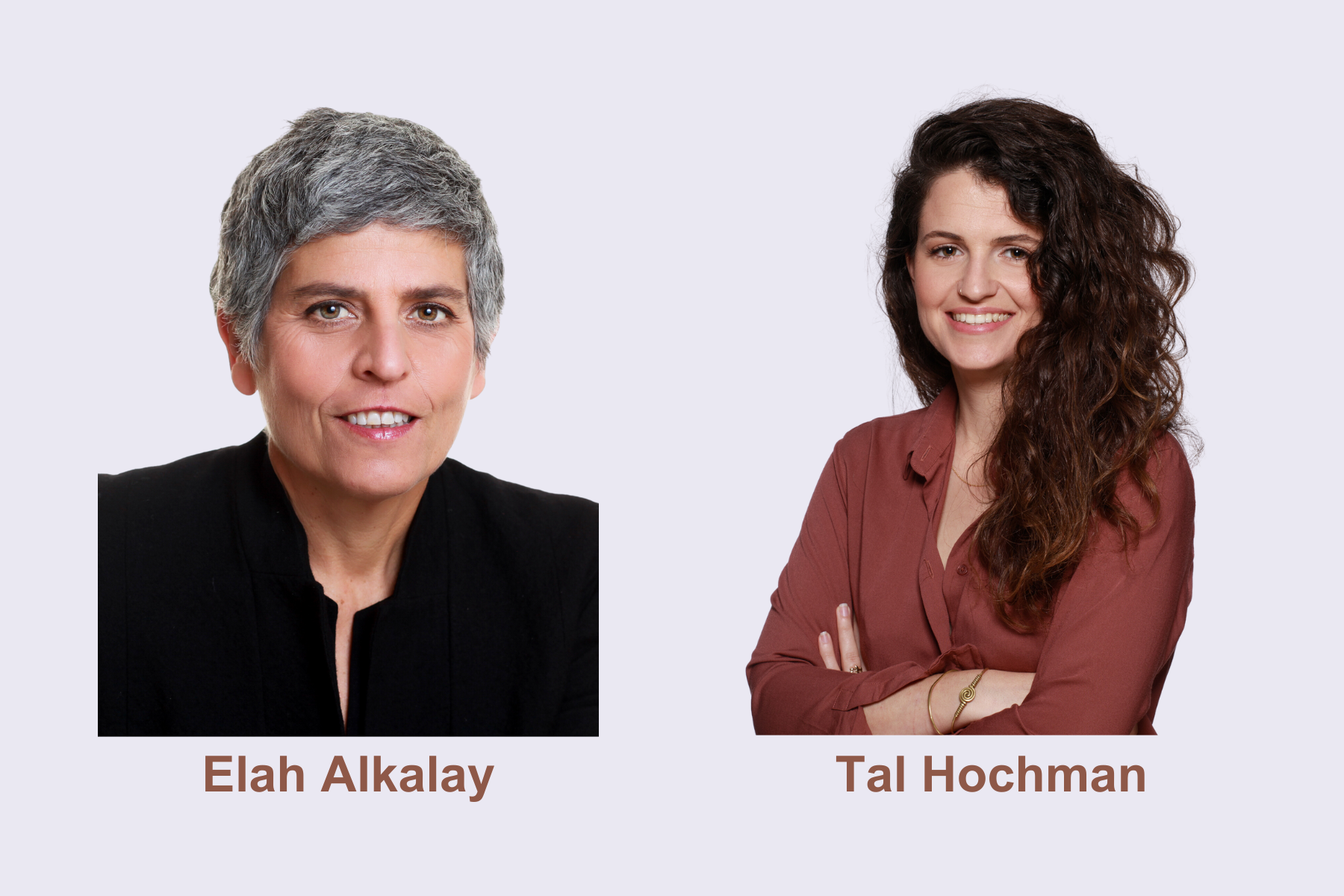Top leaders from the Israel Women’s Network (IWN) joined us in our New York office recently to update us on their wide-ranging work and on some of the major issues facing Israeli women today. A longtime Hadassah Foundation grantee — and one of five 2023 recipients of a Core grant ($80,000 over three years) — IWN is one of Israel’s oldest feminist organizations, and has made landmark achievements in preventing exclusion of women in the public sphere, promoting female representation on the boards of public companies, opening new positions for women in the Israel Defense Forces, promoting anti sexual-harassment legislation, furthering the legal acceptance of a broader and more effective interpretation of the equal pay law and advancing protective labor legislation. Below are highlights from a conversation between HF Chair Audrey Weiner, IWN President Elah Alkalay and IWN Policy/Government Relations Head Tal Hochman. It has been condensed and edited.
AUDREY WEINER: Thank you so much for joining us today. Can you give an overview of some of the major areas of IWN’s work right now?
TAL HOCHMAN: We run hotlines that provide legal aid for women in four languages – Hebrew, Arabic, Amharic, and Russian. We take 1,500 calls annually and are hoping to take more this year. The calls often lead to larger class-action cases or other advocacy work. We are getting a growing number of calls about gender segregation in the public sphere – every week there’s something new, like a girl told she can’t board a bus because she’s wearing shorts, a woman told to move to another train car because men are praying. During the pandemic, we had a case where an ambulance driver wouldn’t let a Covid patient on the ambulance because she was wearing shorts! We also have a lobbying department, which is working with members of Knesset and other government officials to pass bills and to enforce policies that have already been passed.

The poster on the right is an Israel Women’s Network ad protesting the defacement of women’s images in public spaces. The man in the poster is made up of hundreds of small photos of women, and the text reads, “Look at me closely.” (Courtesy of Israel Women’s Network)
AW: Tell us more about the hotlines and some of the cases that you’ve learned about through them.
TH: Right now, we’re representing 600 ultra-Orthodox women in a class-action lawsuit, because their employer, a network of schools, deprived them of their pensions. We learned of this case through the hotline. We’ve also had calls from women who’ve been fired while pregnant, which is illegal in Israel, or women who’ve been harassed in the workplace and their employers haven’t done anything about it.
AW: What does Israeli law say is supposed to happen when women report workplace harassment?
TH: We’re talking to the Justice Department right now about a workplace harassment law passed 20 years ago, which is not enough. The law says the employer must address the situation, but it doesn’t specify what they have to do or what kind of enforcement tools are available. It’s a long process – we’ve been working on this about a year and a half.
AW: What other legislation are you lobbying for right now?
TH: We’re trying to pass a bill that would require men who have been issued restraining orders to wear electronic monitors around their ankles. [On June 16, the legislation passed a critical hurdle when Ministerial Committee on Legislative Matters recommended the law. It still needs to pass second and third readings in the Knesset before it becomes law.] That way the woman and the police would be alerted when he violates the restraining order and comes too close. Currently, many women are afraid to go to the police and file charges against domestic abusers, because they know even if they receive a restraining order, it won’t be enough to protect them. Sixteen Israeli women have been murdered this year in domestic violence cases, which is double last year’s number. We also helped pass a law in 2021 that requires companies with more than 518 employees to file a report about their gender pay gaps. Right now, all they have to do is provide the information, but they don’t have to do anything with it, so we’re promoting a broader bill that will require companies to show they are making progress toward reaching equity.

Women protesting gender-based violence. (Courtesy of Israel Women’s Network)
AW: Tell us about IWN’s Ms. Fix-the-Universe Project.
Elah Alkalay: A few years ago, the Israeli government spent NIS 40 million to have the Ms. Universe pageant take place. We decided to use it as an opportunity to capture public attention and highlight ways women are making a difference outside beauty pageants. We built a website where women activists could post information about their work and people could vote for projects they liked best. On that round we had about NIS 150,000 distributed to three initiatives from a group of donors. Bank Hapoalim got involved, and last year we did the project again. This year, Bank Hapoalim will be giving NIS 340,000 to organizations working to empower girls and young women and to improve their financial literacy. Now, we are using this platform for the upcoming municipal elections – encouraging the women activists to run for office and connecting women already running for office to the activists in their regions. Hopefully we’ll get more women into municipal offices as a result; currently only 6 percent of mayors in Israel are women, and only 16 percent of council members are women.
AW: Are you working with WePower, one of HF’s Visionary Partner grantees, on this project?
EA: Of course! We’re bringing people to the website, helping them establish a useful local network and but WePower is responsible for the professional training and helping them individually run for office.

